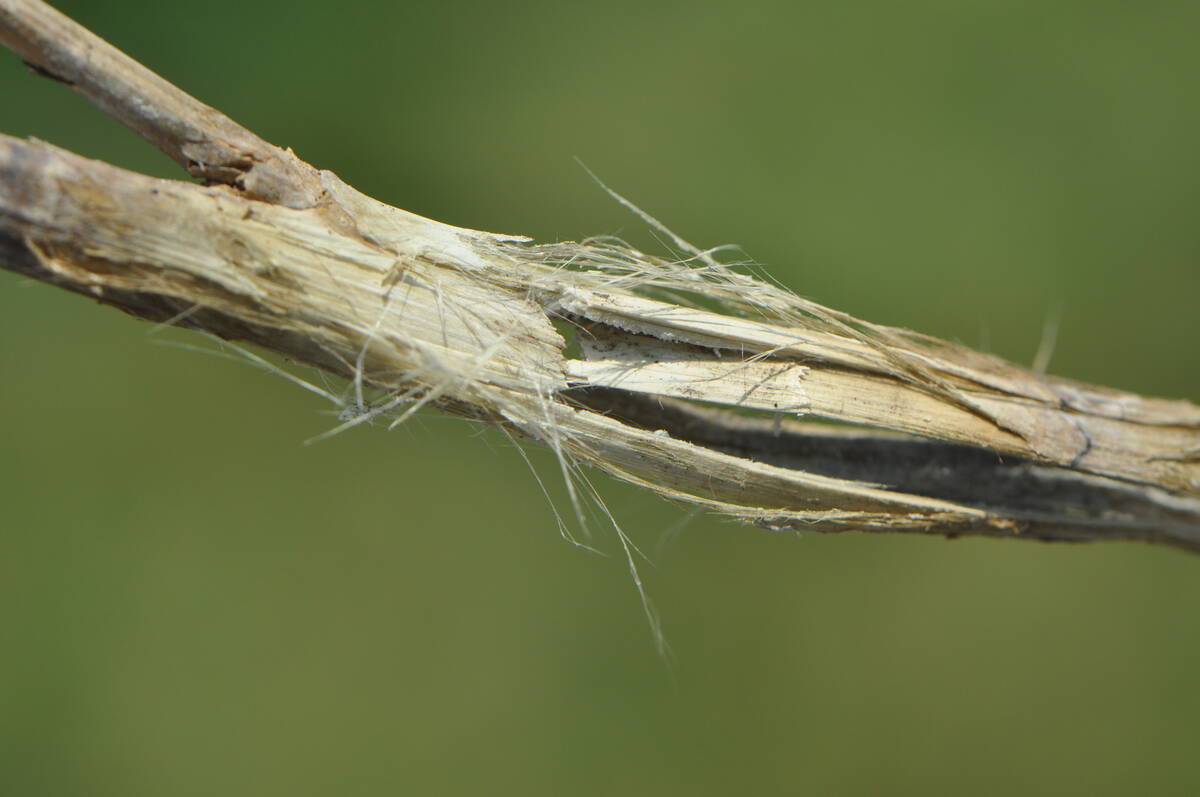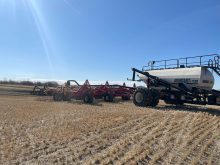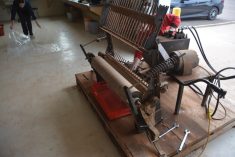Manitoba’s potato industry is coming off a strong year with good production and decent prices but caution is tempering its optimism for the coming season.
The big question mark for this industry remains the health of the U. S. economy, where a large share of the crop heads in the form of frozen french fries bound for quick-serve restaurants like McDonald’s and Burger King.
Gary Sloik, manager of the grower group Keystone Vegetable Producers Association, says potato producers in this province are heavily involved in the U. S. market, making that economy’s health a vital consideration.
Read Also

Manitoba sclerotinia picture mixed for 2025
Variations in weather and crop development in this year’s Manitoba canola fields make blanket sclerotinia outlooks hard to pin down
“A month ago I think there was a bit more optimism than caution,” Sloik said at the recent Manitoba Potato Production Days meeting. “The U. S. economy is the big question mark. Fry sales fell in December, and that’s Manitoba’s big game.”
MAJOR HITS
The U. S. economy, after having a bull run since the 1980s, has taken some major hits in recent months.
A housing bubble and lax lending standards have many banks in peril; that has curtailed lending to the broader economy, slowed economic activity and put the brakes on consumer spending.
Sloik says it remains to be seen what the impact will be on the Manitoba potato industry. Generally, the frozen fry market holds up better because it represents a more economical choice for consumers.
For example, if someone in Chicago is going out for a steak, it’s likely they’ll choose a baked potato as a side dish. But when times are tough they’re more likely to grab a burger – and fries.
“It’s always the premium (baking) potatoes that get hit hardest,” Sloik said.
But outside that premium market, potatoes both raw for the table and processed into fries, are generally seen as an economical staple food.
Other cross-border issues will also remain important for the potato industry in 2009. For example the tough times to the south have also meant protectionist sentiment has reared its ugly head. But will all this talk turn into reality?
“We hope not,” Sloik said.
TRADING PARTNERS
Sloik noted farmers tend to make a lot of purchases from the U. S. in the form of farm inputs and machinery, which may or may not shelter the sector a bit. “They realize we’re their biggest trading partner.”
Another U. S. economy-related issue that’s likely to play out in 2009 is the relative strength of the U. S. dollar. It’s been all over the map in recent months, with the Canadian dollar doing everything from trading over a dollar to below 80 cents. That sort of volatility can have all sorts of effects on a potato industry that was built on a loonie that was trading in the mid-’80s for a prolonged period, industry watchers say.
For example, will a stronger U. S. dollar mean less U. S. fries are exported offshore to Asian destinations, shutting out Canadian fries south of the 49th? Or will it mean Canadian exports to the U. S. are more competitive once again, giving the Canadian industry a currency-based edge?
“How will that play out?” Sloik says. “Nobody knows for sure.”
One thing that has a lot of industry players feeling a bit more hopeful than they might otherwise be is the truly continental nature of the potato-processing industry. The major processors – be they Canadian or U. S. companies originally – all have operations on both sides of the Canada-U. S. border.
BOTTOM LINE
Likewise, the major quick-serve restaurant chains are international players. They’re interested in protecting their bottom line and being profitable first and foremost, Sloik says.
“These guys don’t care where their fries come from,” Sloik says. “The small mom-and-pop operations might have bought by the flag. The big chains buy on price, quality and service. It doesn’t matter to them where it comes from.”
Outside of the obvious economic questions, growers are also wondering what the next shoe to drop will be, agronomically speaking, says one production specialist.
Tracey Shinners-Carnelley, a plant pathologist and pest management specialist with Manitoba Agriculture, Food and Rural Initiatives who works closely with the potato industry, says the industry is just off quite a good year.
“Mother Nature was kind last year… it wasn’t a season of extremes,” she said. “It didn’t get too hot or too cold or too wet or too dry. There are always little pockets of problems, but there wasn’t one big issue throughout the province.”
For an industry that’s used to battling major production issues, such as late blight and other fungal infections, or insect attacks from pests like the Colorado potato beetle, it was a welcome respite – and while everyone hopes for a repeat, no one is counting on it.
Already growers are beginning to fret over the potential for growing levels of fungal plant diseases and resistance to the established control measures, Shinners-Carnelley said.
“I think that will be our next big challenge in the province,” she said. “It’s not time to panic, but it is on the horizon.” [email protected]



















